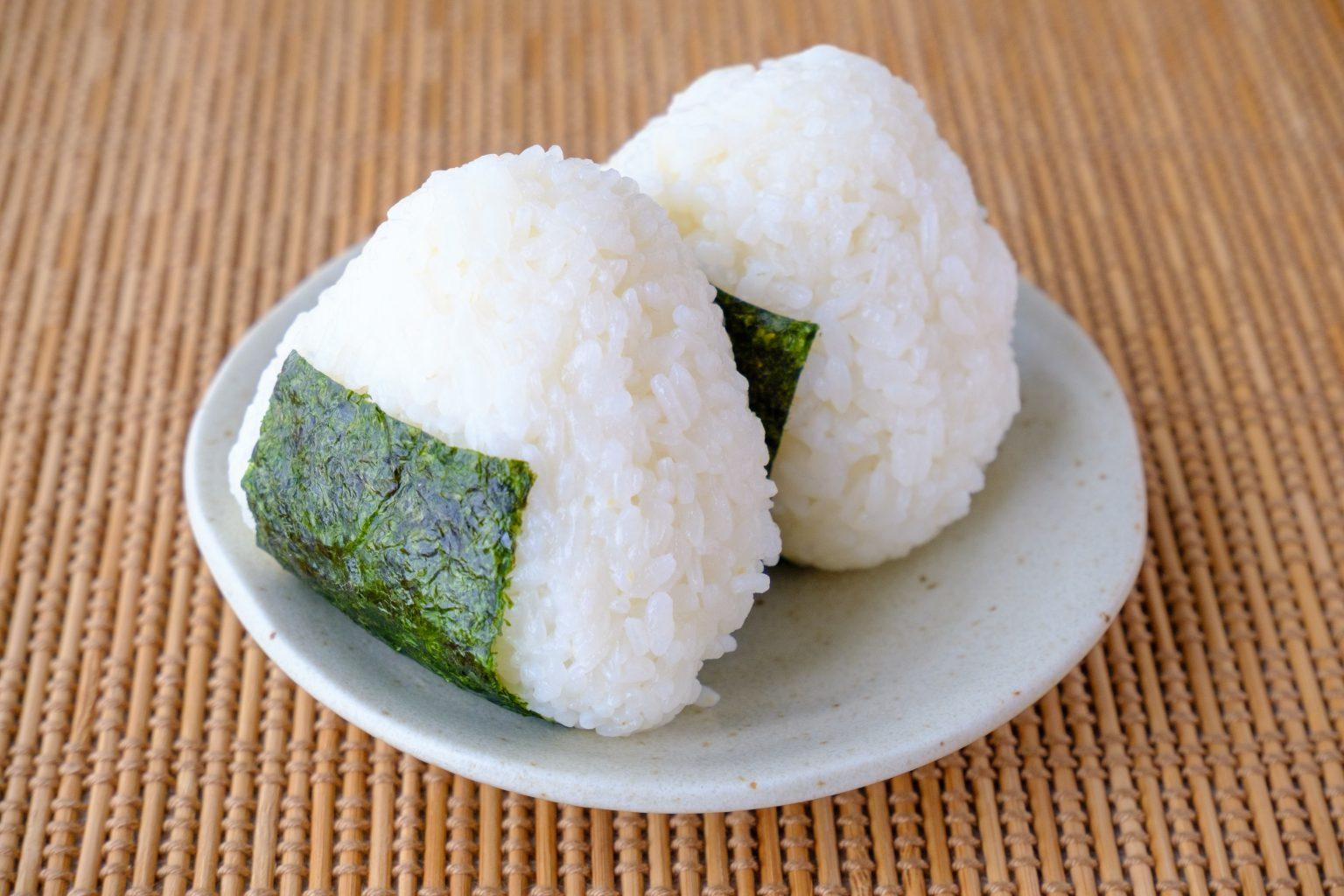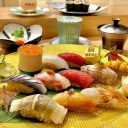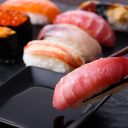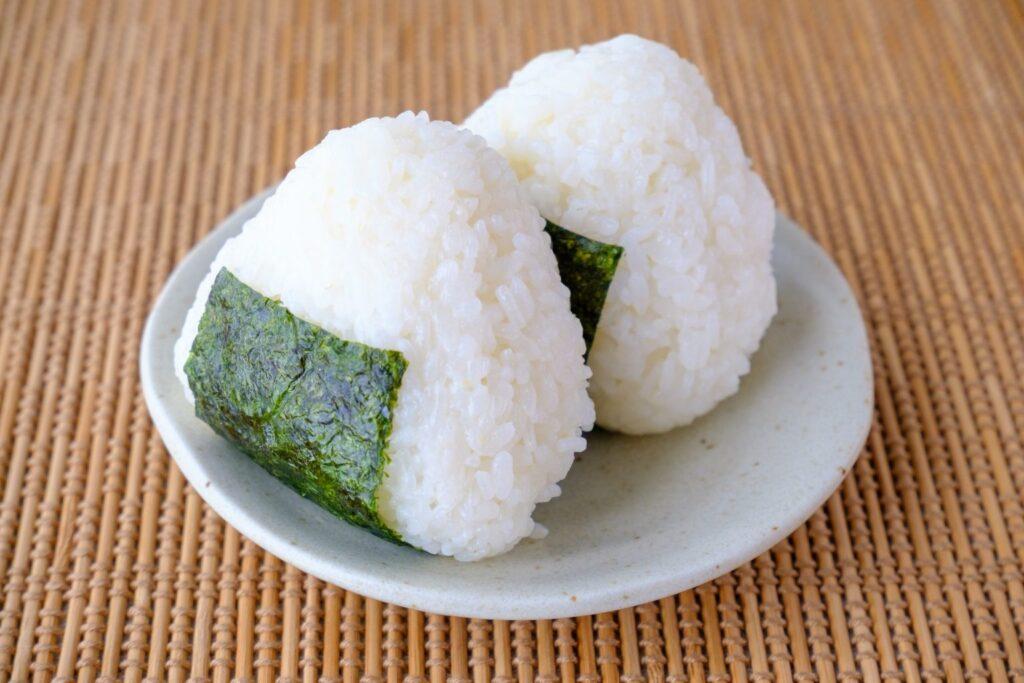
What Are Onigiri? Are They A Snack?
Onigiri is a palm-sized triangle-shaped ball of rice. It is found at a picnic or put in a packed lunch (bento) and even eaten as a snack.
Onigiri starts with rice, salt wrapped in a sheet of nori seaweed, and then is filled with something. Traditional fillings may contain ingredients used specifically in Japan, like konbu (seaweed), bonito (fish flakes), and umeboshi (plum). The onigiri is formed by hand into a triangular shape.
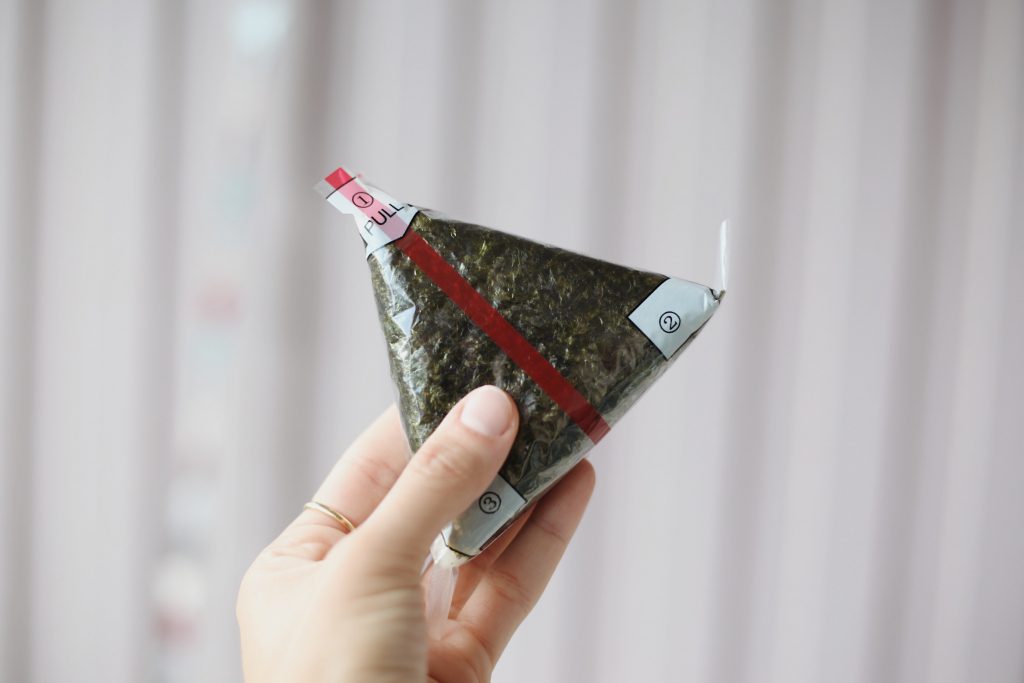
Onigiri is considered finger food, as they are the right size to place in one hand. It is easy to cook and can be healthy depending on the fillings. Why don’t you try making one with the following recipe?
Onigiri Recipe
The recipe for onigiri is straightforward. You just need cooked rice, salt, some water, and dried seaweed sheets.
– Recipe –
1. Prepare some rice and let it cool down a little after it is cooked.
2. Place a pinch of salt on your palms with some water to prevent the rice from sticking to your hands while you are making it.
3. Take a small portion of rice and make it into a rounded shape by using both hands. If you want fillings inside your onigiri, place the ingredients in the centre of the rice before folding the rice around.
4. Optional: Wrap dried seaweed around the outside of the onigiri.
That’s it, time to feast on your creation!
Tip: If you prefer the seaweed to be crunchy when you bite into the onigiri, wait until just before you start eating to wrap the seaweed around the rice ball to prevent it from going soft.
Popular Fillings Japanese People Love
Onigiri is so popular because of the variety of fillings. There is always something for everyone if you visit a supermarket or a convenience store.
Here are six of the most common fillings for onigiri:
■Grilled salmon (sake or shake) seasoned with salt or flavoured with teriyaki sauce
Cooking tips: Use leftover grilled or fried salmon, grill it fresh or if you are feeling lazy, you can buy a jar of ready to eat salmon pieces.
■Sour Japanese plum (umeboshi) – Popular with older generations
Cooking tips: each brand of umeboshi and the region they come from has a slightly different flavour so why not find one you like.
■Tuna and Mayo – this type is a safe option to start when trying out onigiri because it is popular with children and foreigners too!
Cooking tips: get canned tuna, drain it and mix with some mayo.
■ Kombu seaweed with sesame seeds cooked in teriyaki sauce.
Cooking tips: you can buy it already prepared or could try cooking it yourself. Here is a recipe for kombu tsukudani that can be used in onigiri. It’s quick and easy as the main ingredients are sugar and soy sauce.
■Dried bonito flakes (okaka)
Cooking tips: buy a pack of bonito flakes (katsuobushi) and mix with a splash of soy sauce.
■Fish eggs – raw or cooked
Tarako – cooked fish eggs
Karashi mentaiko – spicy chilli fish eggs
The difference between Tarako and Karashi mentaiko is that Tarako has a mild taste, while mentaiko has chilli added to it. Tarako is cooked, while Mentaiko is raw preserved eggs.
Some of these fillings are preserved foods that have been consumed for centuries by Japanese people. They are great for when feeling peckish while you’re out and about because it’s fine to eat after being out of the fridge for a couple of hours.
Passed Down from Generations in Japanese Families
In Japanese families, it is common practice that parents pack onigiri in their children’s lunch boxes. When kids visit their grandparents, they might receive onigiri because its a filling and fairly healthy snack. The tradition has been passed down for generations and still continues in many families in Japan to this day.
Onigiri: The Snack That’s Cheap as Chips
Tasty homemade sandwiches in Japan can be expensive, especially if you are craving something from back home, like quality ham and cheese. Bread is more expensive than rice, so onigiri is a better value for money.
Do you want to add onigiri to your lunch? Even if you are still not sure about making it, it’s easy to find onigiri anywhere in Japan. You can try out many flavours and find your favourite!
— Article From BACK LANE
